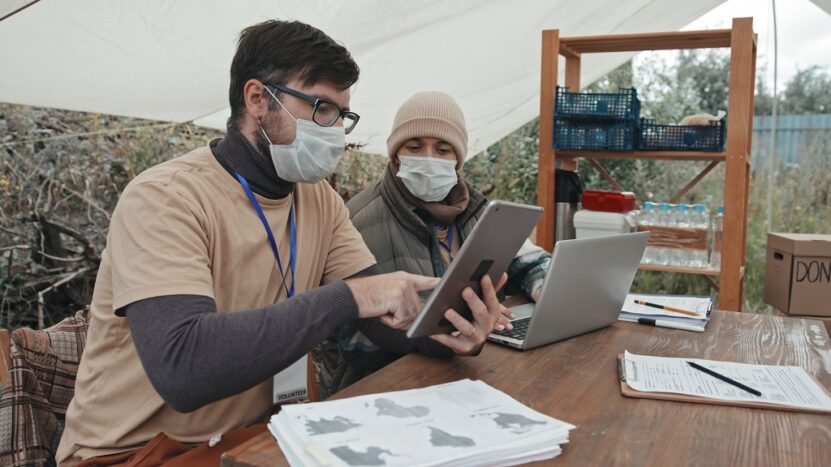Colleges often value volunteer work as part of their admissions process. The number of hours you dedicate can influence how your application stands out.
While many students wonder how much volunteering is enough, the focus should remain on meaningful contributions rather than accumulating hours. The ideal range often depends on the depth of your involvement and the impression it leaves.
Let us explore what colleges generally look for when it comes to volunteer commitments.
Why Volunteer Hours Matter for College?
Colleges consider volunteer work an important part of the application process because it reveals aspects of a student’s character and dedication to their community. Beyond the number of hours, the type and consistency of volunteering demonstrate values that align with institutional goals.
How Volunteer Work Impacts College Applications
- Demonstrates Social Responsibility: Engaging in community service shows admissions officers that you care about contributing to society.
- Highlights Personal Values: Your chosen activities reflect your interests and priorities, helping colleges understand who you are.
- Strengthens Applications: Volunteer experience can distinguish applicants with similar academic achievements by showing initiative and commitment.
- Provides Leadership Evidence: Leading a project or organizing events can enhance leadership skills and make you stand out.
Examples of Volunteer Work Colleges Appreciate
- Tutoring underserved students: Assisting children in education highlights empathy and dedication.
- Participating in environmental cleanups: Efforts in sustainability resonate with institutions prioritizing environmental awareness.
- Serving at local food banks: Helping those in need shows compassion and active involvement in addressing social issues.
- Organizing community events: Managing events demonstrates planning skills and initiative.
The Ideal Number of Volunteer Hours
The ideal number of hours varies depending on the institution, but a meaningful contribution typically falls between 50 and 200 hours. Quality matters more than quantity, so focus on sustained efforts that align with your interests.
Breaking Down the Numbers

- Fewer than 50 hours: May appear insufficient unless tied to a highly impactful project.
- 50 to 100 hours: Reflects consistent engagement without overwhelming other commitments.
An applicant contributed 70 hours working at an animal shelter, which complemented their interest in veterinary science.
- 100 to 200 hours: Often regarded as impressive, especially with long-term dedication.
A student who volunteered 150 hours teaching music to underprivileged kids highlighted their passion for the arts and education, receiving praise in their college application.
- Over 200 hours: Can highlight strong commitment but may raise concerns about balance with academics or other activities.
How to Maximize Volunteer Hours
- Focus on Meaningful Impact: Choose projects that align with personal interests or career goals.
- Engage in Long-Term Commitments: Consistent involvement with one organization carries more weight than short-term engagements.
- Document Achievements: Keep records of hours, roles, and accomplishments to showcase in applications.
How Colleges Value Volunteer Work?
Colleges do not merely count volunteer hours; they evaluate the impact and relevance of your service. Admissions officers want to see how your volunteer work aligns with your values, future aspirations, and contributions to the community.
Factors Colleges Consider

- Consistency: Regular involvement with one organization shows commitment.
- Leadership Roles: Positions like organizing a fundraiser or leading a team enhance your profile.
- Alignment with Career Goals: Volunteering in areas related to your intended major can strengthen your application.
- Community Impact: Contributions that positively affect others resonate with admissions committees.
Examples of Valuable Volunteer Experiences
- Health Science Majors: Volunteering at hospitals or clinics displays hands-on exposure to the field.
- Education Majors: Teaching or mentoring in underserved schools highlights dedication to learning.
- Environmental Science Majors: Projects like planting trees or advocating for clean energy show a passion for sustainability.
Activities That Match Your Goals
Selecting volunteer work that aligns with your personal interests and academic goals ensures authenticity and meaningful involvement. Colleges prefer students who engage in activities reflecting their true passions.
How to Choose the Right Activities?
- Assess Your Interests: Think about causes you care about, such as education, health, or environmental sustainability.
- Link to Career Plans: For example, if you aim to study law, volunteer for legal aid organizations or participate in mock trials.
- Stay Authentic: Pick activities you genuinely enjoy to avoid burnout or superficial participation.
Examples of Goal-Oriented Volunteering
- Medical Aspirants: Volunteering with the Red Cross or shadowing healthcare professionals in free clinics.
- STEM Enthusiasts: Assisting with robotics programs in schools or working in science outreach programs.
- Artists: Teaching art in community centers or helping with mural painting in public spaces.
Mistakes to Avoid in Volunteer Work
Volunteer work is meaningful only when approached correctly. Certain mistakes can detract from the value of your efforts and even negatively impact your college application.
- Focusing on Quantity Over Quality: Accumulating hours without meaningful engagement appears shallow.
A student who volunteered for 300 hours across random, unrelated events found it harder to convey a cohesive narrative in their application.
- Inconsistent Participation: Sporadic involvement in various projects lacks depth.
- Ignoring Documentation: Failing to track your hours and accomplishments makes it difficult to present your efforts effectively.
- Choosing Irrelevant Activities: Picking unrelated projects shows a lack of focus and intentionality.
Balancing School and Volunteer Work

Balancing academics, extracurriculars, and volunteer work requires careful planning to ensure one does not detract from the other. Colleges look for students who manage their time effectively.
- Set Clear Priorities: Decide how much time you can realistically dedicate to volunteering without sacrificing academic performance.
- Create a Schedule: Allocate specific times for schoolwork, extracurriculars, and volunteering to maintain balance.
- Seek Support: Communicate with teachers, family, or counselors if you need help managing your workload.
Examples of Successful Balancing
- A high school senior who devoted weekends to tutoring while maintaining a 4.0 GPA demonstrated excellent time management.
- Another student split their time between a part-time job and volunteering at a senior center, showcasing adaptability and responsibility.
Long-Term Efforts in Volunteering
Long-term commitments show dedication and reliability. Colleges appreciate applicants who invest their time in causes over extended periods.
Benefits of Long-Term Commitments
- Stronger Relationships: Building connections within an organization can lead to leadership roles or impactful recommendations.
- Increased Knowledge: Ongoing work allows you to develop expertise and a deeper understanding of issues.
- Demonstrates Perseverance: Staying with one cause over time reflects loyalty and commitment.
Examples of Long-Term Volunteer Work
- Volunteering at a shelter for two years, gradually taking on more responsibilities.
- Assisting with a literacy program throughout high school, eventually leading workshops for younger students.
Ways to Highlight Volunteer Hours
Presenting your volunteer work effectively on college applications ensures admissions officers understand its value. Highlight specific accomplishments, skills gained, and personal growth.
How to Showcase Your Volunteer Work
- Be Specific: Mention the organization, your role, and measurable outcomes (e.g., “Raised $5,000 for a local animal shelter”).
- Focus on Results: Emphasize the impact of your work, such as how it benefited the community.
- Tie to Your Goals: Explain how your volunteer experience relates to your intended major or career aspirations.
Keeping a Record of Your Volunteer Work

Documenting your volunteer hours helps you stay organized and ensures you can provide accurate details in applications. A well-maintained record also highlights your commitment and professionalism.
Why Documentation Matters
- Provides Proof of Hours: Some colleges may request verification of your service.
- Tracks Accomplishments: Keeping records allows you to reflect on and articulate your impact.
- Facilitates Letters of Recommendation: Supervisors can write detailed recommendations based on your documented work.
Best Practices for Tracking Hours
- Use a spreadsheet to log dates, hours, tasks, and outcomes.
- Request signed letters or certificates from organizations to verify your contributions.
- Take notes on skills learned and memorable experiences to use in essays or interviews.
Example
| Date | Organization | Hours | Role | Accomplishment |
|---|---|---|---|---|
| June 2023 | Animal Shelter | 20 | Volunteer Coordinator | Organized pet adoption |
| August 2023 | Food Bank | 15 | Distribution Assistant | Delivered 300 meals |
Accurate records ensure you can present your volunteer work with confidence and detail.
FAQs
Is Volunteering Mandatory for College Applications?
Volunteering is not a requirement for most college applications, but it can significantly strengthen your profile. It helps demonstrate character traits like compassion, leadership, and dedication, which are valued by admissions committees. While not mandatory, meaningful volunteer experience can give you an edge over other applicants.
What Types of Volunteer Work Should Be Avoided?
Avoid activities that lack substance or do not reflect genuine effort. Examples include:
- One-time events with no long-term impact
- Activities chosen solely to inflate hours without personal interest
- Volunteering at organizations where you are not actively contributing (e.g., just observing or shadowing without involvement)
Colleges can often discern insincere participation, so focus on meaningful and impactful experiences.
Can Virtual Volunteering Be Included?
Yes, virtual volunteer work is acceptable, especially since it has become more common in recent years. Examples include tutoring students online, working on advocacy campaigns, or supporting nonprofit organizations with administrative tasks. As long as the activity is impactful, it will carry weight in your application.
How Early Should You Start Volunteering?
Starting volunteer work as early as freshman or sophomore year in high school allows you to build a consistent track record. Early involvement also gives you time to explore different causes, find your passion, and take on leadership roles. Late starts can still be valuable if the work is meaningful and aligned with your interests.
Should You Include Volunteer Work Not Related to Your Major?
Yes, including volunteer work unrelated to your major is acceptable as long as it demonstrates commitment and meaningful contributions. Colleges value well-rounded individuals, so activities that showcase empathy, responsibility, or leadership can still enhance your application, even if they are not directly tied to your field of study.
The Bottom Line
Volunteer work can make a significant difference in college applications when approached with purpose and consistency. Focus on meaningful contributions that align with your values and goals, rather than just accumulating hours. Colleges value the impact of your efforts, the skills you develop, and the dedication you show over time.
